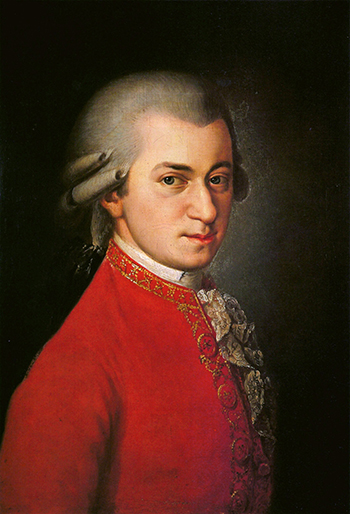
Piano Music from Vienna
By David Garrett
People from Vienna can be proudly possessive, regarding their city as the world’s music capital. Vienna has even been slow to accept some out-of-town, adopted Viennese, such as Mozart and Mahler. The Kiev-born conductor Jascha Horenstein, who grew up in Vienna and knew Schoenberg and Webern personally, found these composers very provincial: ‘They thought that Vienna was the only place where music is produced’. Not an outlandish claim for a city also boasting Haydn, Beethoven, Schubert and Brahms … and the Strauss family of waltz-kings.
Elisabeth Leonskaja’s Great Performers recital includes music by Schoenberg and Webern. ‘Mostly Mozart’, or ‘Mozart plus’, it all bears the imprint ‘Made in Vienna’.

Mozart Sonatas: Simple, but Hardly Simplistic
Mozart is many pianists’ first encounter with Viennese music. Yet it was quite rare, until the Mozart mania of the late 20th century, to hear his sonatas in piano recitals. Artur Schnabel (who did play them) explained: ‘Mozart’s piano sonatas are too easy for children, and too difficult for professionals … they are given to children because of the small quantity of the notes, yet grown-ups avoid them because of the great quality of the notes.’
Mozart crafted some of the five sonatas in the Leonskaja program to please dilettante players, others to show off his own virtuosity as composer and performer. There are concerto-like pieces (especially K.333, with its cadenza in the last movement) and gimmicks, like the Turkish janissary music in K.331’s Rondo alla turca. There were old people in Vienna, when Mozart first came to that city, who could remember how close the Turkish army had reached.
Schoenberg & Webern: Music of a Master & His Disciple
The key of the first Mozart sonata Leonskaja plays recalls Arnold Schoenberg’s adage: ‘There is still much good music to be written in C major.’ Clearly the world agrees, as the Sonata (K.330) is among Mozart’s most popular works. As for Schoenberg’s own music, and that of his disciple Anton Webern, no one would accuse that of the deceptive simplicity we attribute to Mozart. Schoenberg’s Six Pieces, Op.19, and Webern’s Variations, Op.27, take the small quantity of the notes to an unprecedented extreme. ‘A novel condensed into a sigh’, said someone of Schoenberg’s Op.19.
Elisabeth Leonskaja’s program illustrates the continuity of music made in Vienna, played by a pianist who has lived there since 1978. Schoenberg and Webern were determined to extend a great tradition, which included Mozart. Provincial musicians? Maybe – but what a province!
David Garrett is an Australian writer, historian, music programmer and broadcaster.
Elisabeth Leonskaja makes her Great Performers debut on 24 March. Tickets available here.
You might also be interested in
-
-
-
Explore the program notes in advance

